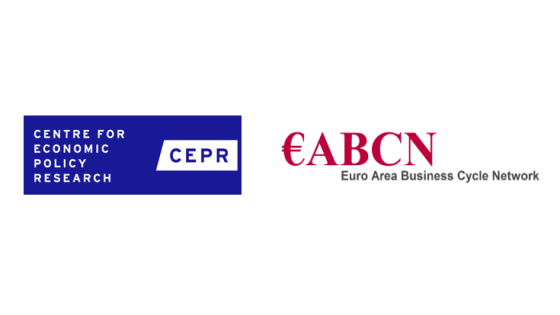

Search the site

The CEPR-EABCN Euro Area Business Cycle Dating Committee deliberated on 30 June 2023 to assess the state of euro area economic activity, relying on data through the first quarter of 2023. Real GDP in the first quarter of 2023 was a whisper below that of the previous quarter, which, in revised data, was also a quarter with a faintly negative growth rate. Although output was not growing, employment continued to expand, especially in the service sector and construction. The euro area unemployment rate reached a new low at 6.5 percent.
Two quarters of very mildly negative growth has led to talk about a recession. The Committee defines a recession as a significant decline in the level of economic activity, spread across the economy of the euro area, usually visible in two or more consecutive quarters of negative growth in GDP, employment and other measures of aggregate economic activity for the euro area as a whole. This is more than two quarters of negative growth. When trend growth is so close to zero, insignificant negative growth rates are to be observed with some regularity and may not by themselves constitute recessions. In this instance, particularly, the labour market is continuing to do well, with employment growing and euro area unemployment at its historically lowest level.
A recession is an episode when factors of production are not being utilized as much as before and output falls below its potential. Potential output is difficult to measure but the labour market is easy to observe. A call that places the euro area in a recession now would be premature. If activity picks up, this will be a mild slowdown in a period of low average growth. If there is a broad-based slowdown that is manifested in various measures of activity, including the labour market, that will be a recession and the previous peak may—or may not—be 2022Q3.
The committee will continue monitoring and commenting on developments.
The full Summer 2023 statement of the Dating Committee on the current state of the economic activity in the euro area is available here.
The CEPR-EABCN Euro Area Business Cycle Dating Committee establishes the chronology of recessions and expansions of the eleven original euro area member countries plus Greece for 1970-1998, and of the entire euro area from 1999 onwards.
It also comments, in the spring and in the fall, on the current state of aggregate economic activity in the euro area and launches research initiatives designed to better monitor and understand aggregate economic developments in the euro area.
Dating activities and bi-annual statements on the state of euro area economic activity are conducted in total independence of EABCN. Research initiatives launched and pursued by the Committee are subject to the approval and evaluation of the EABCN Scientific Committee.
The Committee’s research assistant and rapporteurs are Mahmut İpek and Senem Turan, Bilkent University.